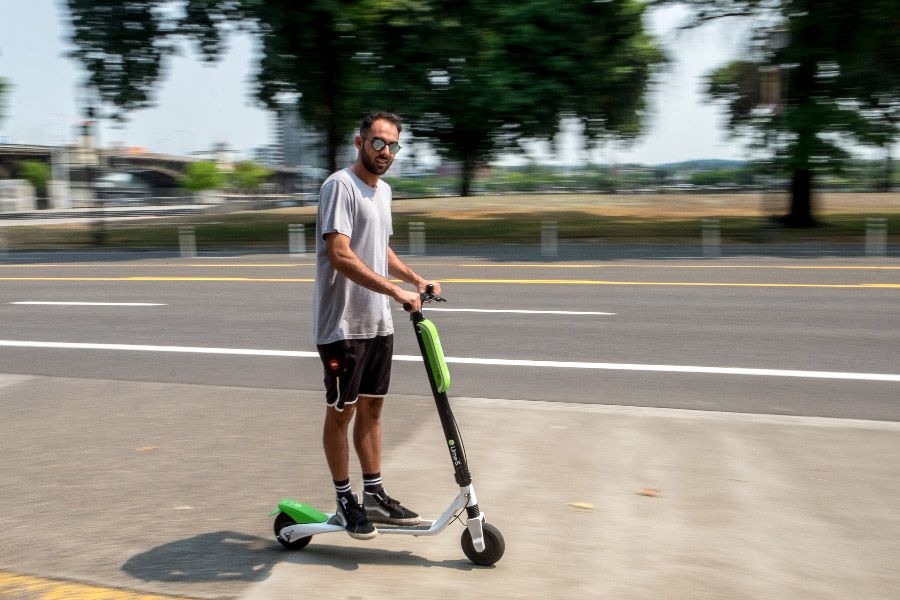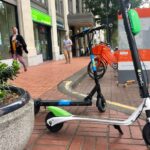Bureau of Transporation releases in-depth survey.
The first real numbers are in on Portland’s e-scooter pilot. The Portland Bureau of Transportation released an in-depth survey today of 4,500 riders. Finally, we’ve got hard data to back up our sidewalk punditry.
For urban planners, the most exciting aspects of e-scooters are the potential to replace car trips and provide last-mile solutions from the bus station to home. On the first goal, scooters are succeeding. About 31% of users said that their last scooter ride took the place of a car trip. Sixteen percent of survey takers said they’ve thought about ditching their car because of scooters, and 6% reported that they did it already. Before you follow suit, remember PBOT is undecided about keeping scooters for good.
On the second goal, however, scooters are performing below expectations. Sixty-one percent of users surveyed said they never use a scooter to get to a bus or MAX station. Only about 12% reported ever linking their trip with a transit stop.
Despite promotion of low-income fare programs from the scooter companies, the vehicles score low marks for diversity and inclusion. Nearly three-quarters of the survey takers identified as white (to be fair, about the same as Portland as a whole). Only about 20% made less than $30,000 a year.
The sharing economy transportation scene in Portland already bristles with competition, and the survey results hint that scooters siphon some users from other modes. Twenty eight percent of respondents reported using the Nike BIKETOWN bike share system less frequently since scooters hit the streets. Thirty-two percent cut down on their car-sharing usage, and 44% took fewer taxi, Uber or Lyft trips.
The survey also tucked in a pop quiz on scooter law. Most respondents aced it, scoring between 77% and 95% on the legal questions. The stumper asked about riding in city parks and on waterfront trails (not allowed).
Of course knowing isn’t the same as doing. I’ve spotted more than one couple riding a single scooter on the sidewalk sans helmet. Fifty nine percent of survey takers told PBOT they never wear headgear, and about half admitted to surfing the sidewalk.
Sixteen percent of survey takers said they’ve thought about ditching their car because of scooters, and 6% reported that they did it already.
If you agree with a mysterious rogue PBOT employee that the majority of scooter users are tech bros, you might be right. Sixty-two percent of the survey takers identified as men, and 36% as women. Around 59% of respondents said they held a bachelor’s degree or above. The plurality of users (35%) indicated they made more than $75,000 a year.
But scooters aren’t all fun and games, and not all riders are out-of-towners balancing a pink Voodoo Doughnuts box as they ride. Around 30% of users said they rode a scooter to work, or to get to a work meeting.
The biggest question of all, however, is whether Portlanders want scooters around for good. With about 66% of respondents saying they would ride at least once per week, the survey suggests the answer is yes.
The Bureau of Transportation said in a press release that it will continue to evaluate the pilot through focus groups, on street observations, data analysis and a review of feedback and complaints. The scooters will disappear on November 21, as the bureau ponders whether to bring them back for good.
To subscribe to Oregon Business, click here.






